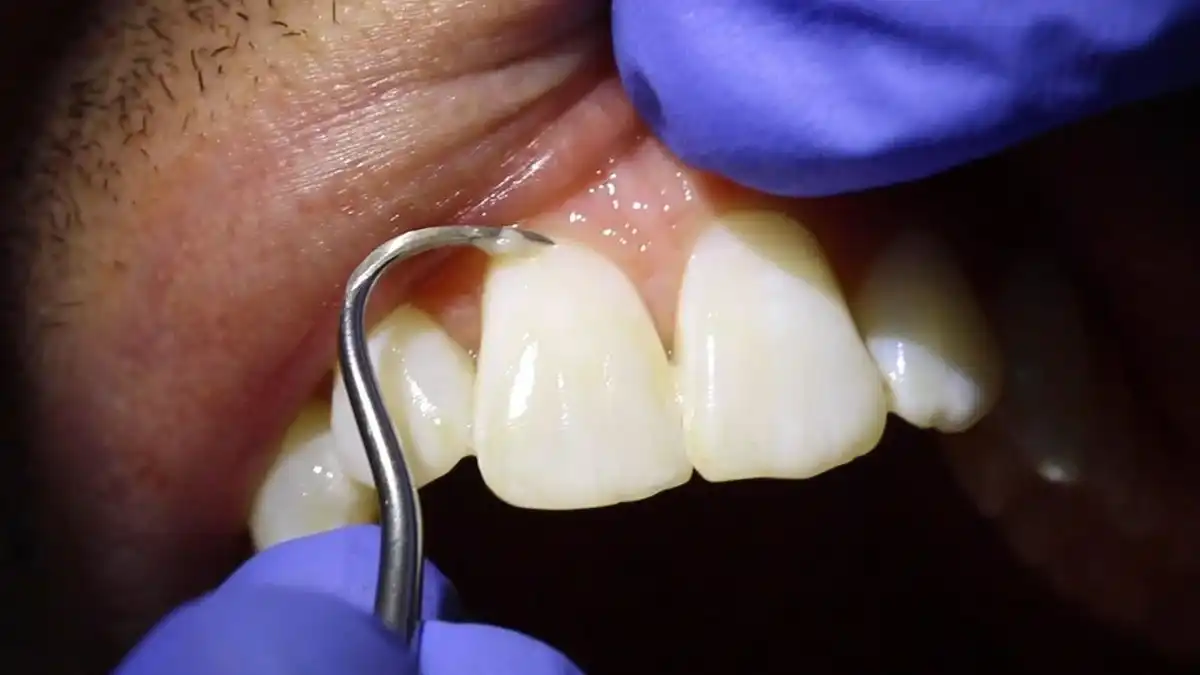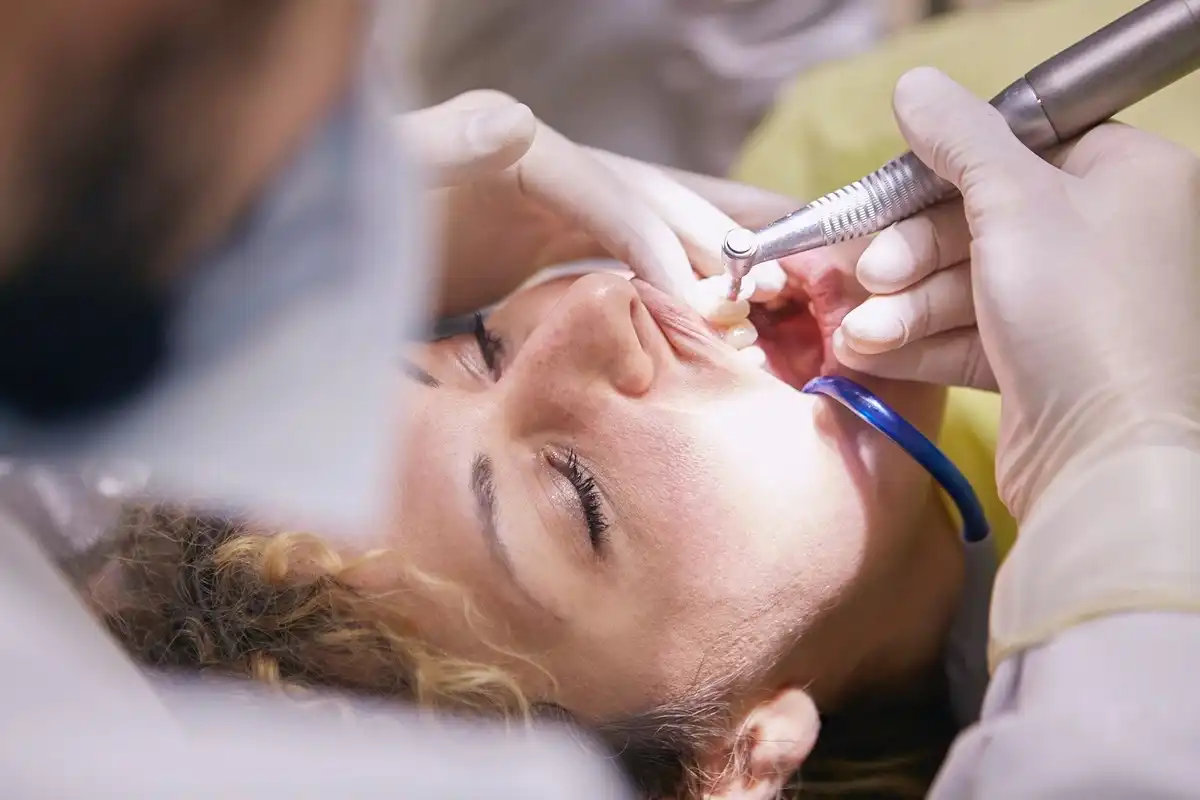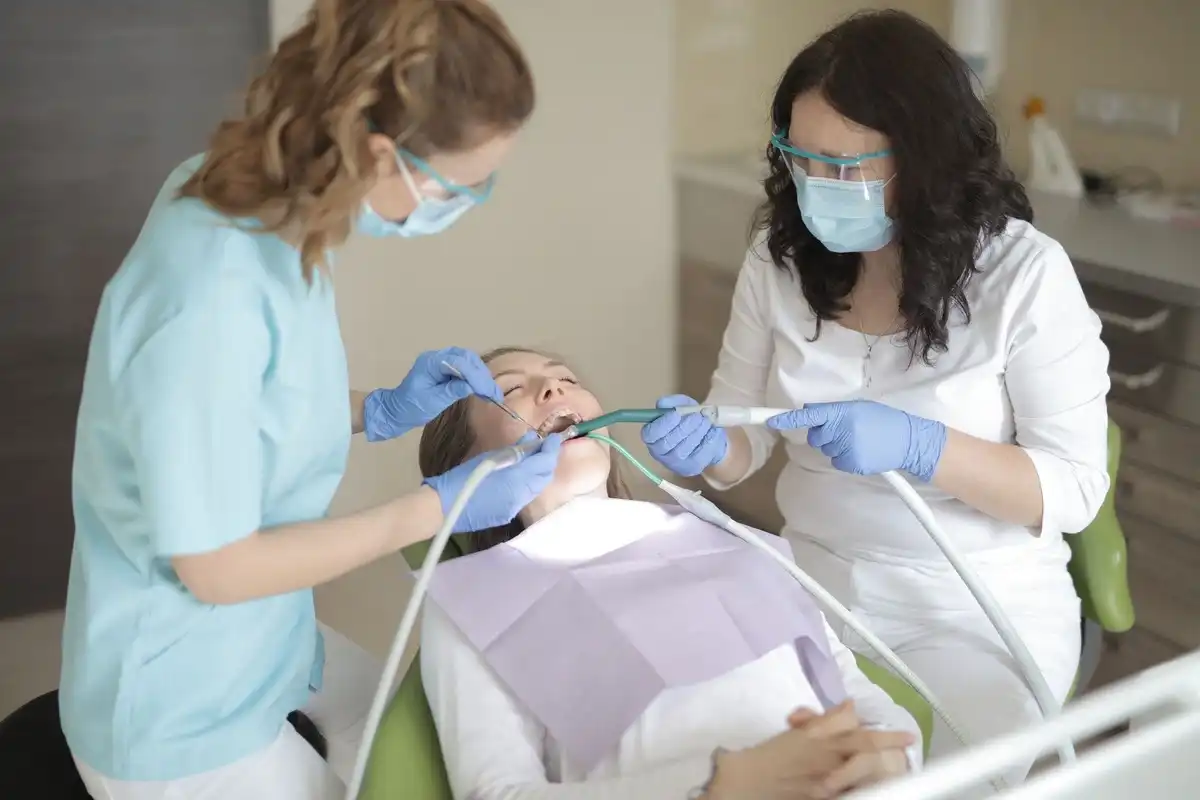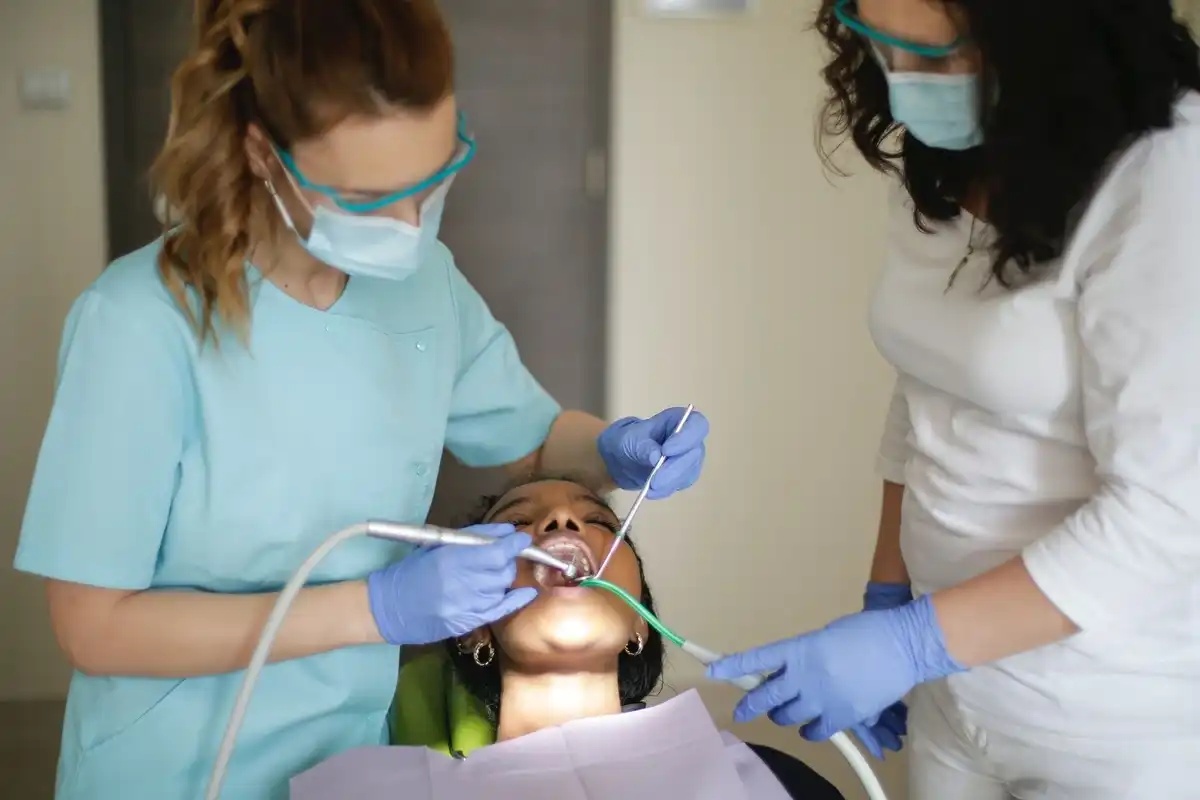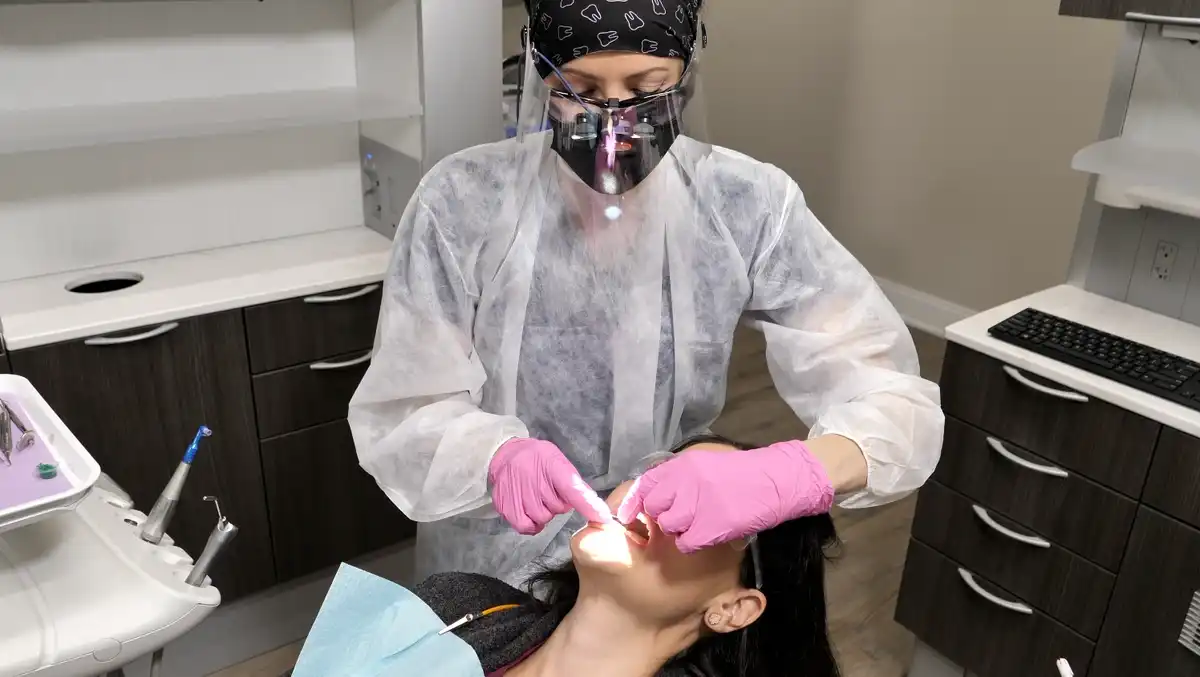How To Become A Dental Assistant: Career, Salary, & Education


What is a Dental Assistant?
Dental assistants are the dentist’s official sidekick when it comes to providing patient care. They help the dentist during the day-in and day-out appointments, whether it’s a basic filling or an emergency dental extraction.
Dental assistants work closely with the dentist and are usually responsible for things like:
- Preparing patient charts
- Assisting in dental procedures
- Sterilizing instruments
- Taking impressions
- Making models of teeth
- Taking x-rays
- Preparing materials for fillings
- Providing instruction to patients about oral hygiene techniques
- Keeping track of medical records and referrals
In addition to clinical responsibilities, dental assistants perform a range of things like supporting the front office area, such as answering telephones, scheduling appointments, and collecting payments from patients. Some assistants are also responsible for making appliances like fitting whitening trays or over-ordering products.
In summary, a dental assistant plays an important role in supporting dentists while delivering excellent care to patients. Becoming a dental assistant requires the right combination of formal training, experience, and personal traits. With hard work and dedication, anyone can become a successful dental assistant.
Dental Assistants Career Ranking
Considering how quickly it’s possible to complete a dental assistant training program, it’s no wonder why it’s a great gig to have. Especially when you want to totally avoid going into student debt or are unsure about spending more time in a longer program, like dental hygiene school. A lot of dental professionals consider starting out as an assistant to make sure they like the industry, and some people even make assisting their second career!
Salary Outlook for Dental Assistants
How much you get paid for your dental assistant salary will depend on some key factors, like:
- Where you live and the cost of living in that area
- Starting salary vs. More experience or training
For example, some parts of the country may pay only $37,000 per year for a full-time, new dental assistant, while others are closer to $50,000. And given the inflation affecting the current economy, that number is only expected to rise. Be sure to check job listings in your area as you begin to apply to dental assistant school so that you can realistically know what a starting salary will be before you are totally invested.
How Much Do Dental Assistants Make Per Hour?
According to the Bureau of Labor Statistics, the average annual wage for dental assistants in 2019 was just over $38,660. Depending on how many vacation days are built in, that’s between $19-20 an hour. But if you’re in an area where the yearly salary is closer to $50,000 a year, that bumps you up to around $25 an hour. It all depends on your location!
Some dental offices will even have more flexible office hours, like evenings and weekends, with opportunities for bonus pay.
With additional training and certifications, you may be able to increase the amount of money you make per hour. Such as having your nitrous certification or expanded functions certificate, if applicable in your state. Taking continuing education courses to stay up to date with changes in technology and protocols is also important for being an effective dental assistant, in addition to CPR, OSHA, radiation, and HIPAA training. Many offices will offer these pieces of training to their employees, but having them in advance will make you a more competitive job applicant.
Best-Paying Cities for Dental Assistants
Want to make the most money as a dental assistant? Then you’ll want to move to one of these top 5 cities:
City | Average Salary |
|---|---|
| San Francisco, California | $55,150 |
| Minneapolis, Minnesota | $55,020 |
| San Jose, California | $54,590 |
| Santa Rosa, California | $52,550 |
| Rochester, Minnesota | $52,510 |
The Best-Paying States for Dental Assistants
State | Average Salary |
|---|---|
| Minnesota | $53,080 |
| Massachusetts | $51,210 |
| Alaska | $50,640 |
| New Hampshire | $49,470 |
| Oregon | $48,780 |
What Is The Salary For A Dental Assistant In California?
California is a huge state, so your dental assistant salary can vary depending on which part you’re in. Most likely, it’s going to be higher around LA than it is somewhere else. The average dental assistant salary in California is around $50,000 per year, but it’s also higher because of the higher cost of living in that area. Some people don’t mind a longer commute, where they have cheaper housing and drive into LA for a higher salary, but that’s something you’ll want to factor in before making a big move for your dental assistant career.
Jobs Related to Dental Assistant
There are many jobs related to being a dental assistant that offers competitive wages and flexible hours. These positions include roles like dental hygienists, dentists, lab techs, and office managers.
Even though most of these jobs require additional training and degrees, depending on your level of experience and expertise, you may qualify for managerial or administrative roles such as the office or practice manager. In fact, many dental office managers start out as dental assistants themselves; all of the cross-training they receive on the job helps make them one of the most qualified dental team members to manage the practice. Dental assistants to dental hygienists is one of the most common career paths in the dental world.
How to Get a Job as a Dental Assistant
If you want to become a dental assistant, there are several steps you must take. But keep in mind that some of these steps may be inapplicable, depending on which state you live in or what type of training you’re completing.
1. Attend an Accredited Dental Assisting Program
Before getting a job as a dental assistant, you must complete an accredited training program at an approved school or institution, such as an associate degree or certificate program in dental assisting. Many accredited schools are attached to a network of dental offices to ensure you get on-the-job training. Some even provide job placement services after you graduate. Dental assistant programs are not all created equally!
2. Get Your License or Dental Assistant Certification
Depending on the state you live in, and where you went to dental assisting school, they may require dental assistants to get a license or state dental assisting certificate before you can start working in a dental office (or within a certain number of days/months after you start your job.)
3. Take National Boards
4. Meet State Requirements
Each state has its own set of requirements, so make sure to check with your state board for specifics. Just Google “state board of dental examiners,” and you’ll find the website and regulations for the state you live in. Your dental assisting school should also be able to tell you what’s required in your geographical area.
5. Take Additional Certification or Continuing Education (CE) Courses
Make sure you have all of the necessary certifications to go along with your dental assistant training. Such as CPR, nitrous monitoring, etc. Some states may require continuing education courses for dental assistants to stay up to date with industry changes. Your office will probably offer them as a job benefit.
Job Satisfaction: What is the Job Like?
Working as a dental assistant can be both rewarding and challenging at times. It requires dedication and attention to detail but offers job satisfaction by helping people receive quality care that betters their overall health and self-confidence. As one of the fastest growing professions in the healthcare industry, dental assisting provides stability and security while allowing professionals to help shape smiles all over the country!
Being a dental assistant can also be challenging at times. As a dental assistant, you'll need to manage multiple tasks and patient needs, so having good organizational skills is essential. The ability to multi-task is a must. It's important to be prepared for potentially stressful situations, as you will be dealing with difficult patients and sometimes tight deadlines. People can sometimes get emotional in a dental office, especially if they have a toothache or emergency or are worried about their insurance. There are also the chances of working in a small office environment where not all of the team members always get along, so being a good team player with great communication skills is crucial.
However, when done right, most dental assistants find it to be a highly rewarding and fulfilling career. You’ll have the satisfaction of knowing that you're helping people maintain healthy teeth, which impacts numerous other health conditions besides their smile.
Dental Assistant Education Requirements
Attending an Accredited Dental Assistant Program
In order to become a dental assistant, you will need to complete training with an accredited dental assisting program. Dental accreditation is extremely important because it can affect whether or not you become licensed or meet the training requirements for your state. Not all dental assistant training programs are accredited.
An accredited dental assisting school will provide its students with both theoretical and practical training that covers a wide range of topics such as patient education, chairside assisting, lab work, taking X-rays, infection control, and much more.
The length of each program can vary depending on the school and state, but typically they are completed in less than one academic year. Once you complete the program, you’ll be qualified to sit for any applicable exams.
What You’ll Study
During your studies, you’ll learn about a variety of topics related to dentistry, including:
- Anatomy of the oral cavity
- Dental instruments and materials
- How to prepare for examinations and other procedures
- Radiation safety and processes
- Patient charting and record-keeping
- Basic insurance information
- Cross-contamination and infection control
- Safety protocols
- Patient privacy
- Chairside assisting (“four-handed dentistry”)
Even though most people picture dental assistants always sitting next to the dentist and handing them instruments, a large portion of your job skill will include independent tasks and patient preparation. Some programs will also train you on specific software programs, which will help your transition when it comes to working in an actual dental practice.
Types of Dental Assistant Degrees
Here’s the great news! You don’t need a degree to be a dental assistant. But you do need a least a associate degree to be a dental hygienist, which is why a lot of people want to go through assistant training first to make sure they like the field.
By completing an accredited dental assisting program, you will gain the knowledge and skills needed to pursue a successful career, whether it’s just for “right now” or the rest of your life.
When you go through an accredited dental assistant program, you have access to learning from experienced professionals in the classroom setting and real-world experience through clinical rotations or similar partnerships with dentists in your area. You’ll have the hands-on training to practice new skills while working directly with patients under supervision from licensed dentists or hygienists. With the proper education and experience in hand, you can start pursuing job opportunities and start the day after graduation as long as you’re ready!
Online Dental Assistant Training
For people who don’t have the time or ability to attend college courses in person, there are now plenty of online courses available to help them become a successful dental assistant.
Online assistant courses cover topics such as medical terminology, dental materials, instruments, office procedures, and anatomy. Depending on the program chosen, some may also include interactive lessons such as simulations and virtual laboratory activities.
Most online programs offer certificate programs that are tailored for aspiring dental assistants. Upon successfully completing the classes, graduates will receive their certification or diploma, qualifying them for an entry-level position in the field. Online courses are flexible, affordable, and provide convenient access to education at any time from any place as long as you have an internet connection.
How to Get Your License or Certificate
Once you finish all of the training at an accredited institution, the next step is completing any required state licenses or certificate requirements. Such as submitting your diploma and a copy of your CPR card to the state. Or it might involve taking the DANB or other state dental assistant exam. Once you have all of your paperwork submitted to the state and complete your application for a dental assistant license (if applicable,) the state will mail you your license within the next several weeks.
This part can be confusing, so make sure you stay in contact with your school and the state dental board for more information regarding current laws and regulations regarding licensing processes. Some states require licenses for dental assistants, and some don’t.
Some states even allow for a “limited” license that allows unlicensed dental assistants under direct supervision (that means the dentist is there with them) to perform tasks they would otherwise not be allowed to do without a license. Again, you really need to get in contact with the board in your specific state for more information. There’s zero consistency from state to state!
National Boards
Only some states currently require DANB certification; however, more than likely, even if your state does not require it, having your DANB certified credentials could improve your job opportunities. Usually, the extra certification will give hiring managers and dentists more confidence when they’re looking at dental assistant resumes.
In addition to these certificates, certain states now offer expanded services responsibilities by dental assistants. These types of procedures allow assistants who have passed certain tests to perform job duties that the typical dental assistant does not.
State Requirements and Boards
I cannot stress it enough: it is super important to understand what your state may require for certification. Historically, some states have required Dental Assisting National Board (DANB) exams as part of the process, but this isn’t necessarily the case anymore. Many states have dropped testing altogether. There are currently only a handful of states that still require the exams as part of their licensing procedure. The DANB website is a great resource to help you locate each state’s respective licensing boards.
CE Courses
Dental Assistant vs Dental Hygienist
Dental assistants and dental hygienists are both important members of the dental office team, but they have different roles and responsibilities.
Dental Assistants
Dental assistants work under the supervision of a dentist and perform a variety of tasks to support the dental team. These tasks may include taking and developing dental X-rays, preparing and sterilizing dental instruments, taking impressions of teeth, and assisting the dentist during procedures. They may also be responsible for greeting patients, scheduling appointments, and managing patient records.
Dental Hygienist
Dental hygienists, on the other hand, work more independently and focus on preventative dental care. They are responsible for cleaning teeth, examining patients for signs of oral diseases, and providing education on oral hygiene and disease prevention. They may also take X-rays and provide recommendations for treatment based on their findings.
In terms of how to become a dental assistant is different than the dental hygienist. Typically dental assistants complete a one-year or two-year program, while dental hygienists typically complete a two-year associate degree program. Dental hygienists must also be licensed by their state, which typically requires passing a written and clinical exam.
How to Become a Dental Assistant
Becoming a certified dental assistant (CDA) or registered dental assistant (RDA) can offer many benefits, from helping other people to giving you a platform to jumpstart your dental career. The average salary is about $38k per year, but it fluctuates depending on which state you live in and the cost of living in those areas. If you love the idea of working in the dental field but are uncertain about spending years in college—or the debt that comes with it—you can quickly and affordably complete your dental assistant training without going into debt. Just be sure to locate an accredited program near you, complete the necessary licensing requirements, and stay up to date on your CE training. You can go to dental assisting school straight out of college or after your kids move out for a second career!

Make your inbox smile!
Subscribe
